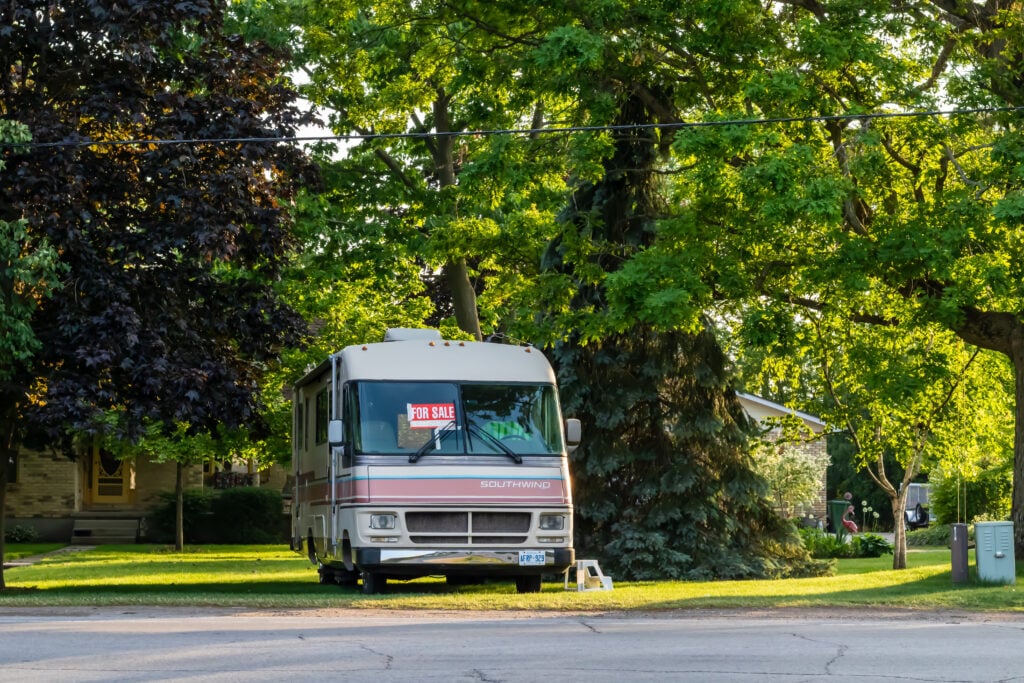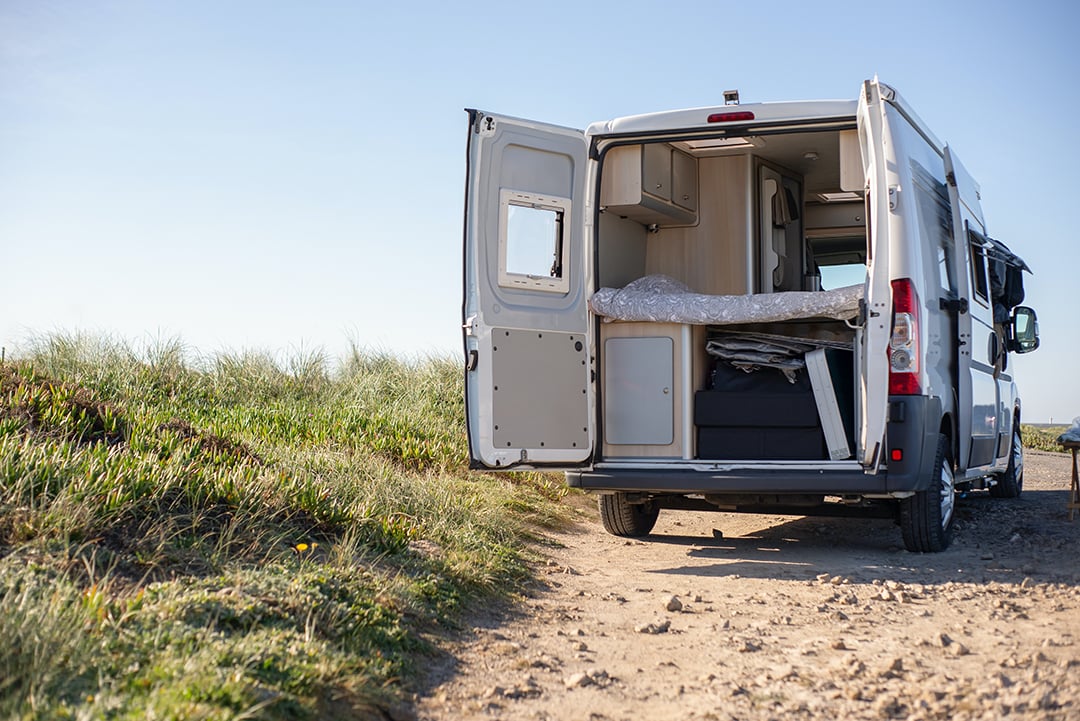
Don’t Think of Buying An RV Out Of State Without Research
RVs are in demand. Buying an RV out of state is often your only option to get one. RVs are some of the hottest commodities out there right now and the prices reflect it. If you have a certain RV in mind, there is no doubt that you have had to cast a wide net in order to find the one you want. This means looking for an RV outside of your own state.
But is buying an RV out of state a good idea? The answer depends on several questions you will need to ask yourself.
Questions to Ask Before Purchasing an Out of State RV
1. What will be your cost and tax savings?
One of the top questions to ask is whether or not you will save money on an out-of-state purchase.
If you found an RV in another state that is at least $5,000 less than in your home state, then the extra travel time, delivery charges, and hassle could be worth it. Will it save you a few hundred dollars? Then it might be better to keep searching closer to your own home.
If taxes are another big question, rather than worrying about what state you purchase the camper in, take into consideration the state where you will be registering your RV.
And if you purchase a drivable RV such as a Class A, B or C or a travel trailer (essentially anything with wheels), you will need to register it with your DMV. If you purchase a truck camper or topper, there are only a few states that require registration.
Taxes are paid where you title and register the RV. If you live in a higher tax state such as California, it might be beneficial to take delivery of your new RV in another state with a lower tax rate such as Nevada or Arizona. Then you can register in the state with the lower tax and the dealer isn’t required to collect the sales tax.
If you are interested, the cheapest state to register an RV in is Montana.
2. Can you get a a walk-through of the RV?
It’s so nice to be able to drive down to your local dealer and tour your chosen RV. However, that’s not always possible if you are buying an RV out of state. If you found the RV you want online, the easiest thing to do is ask the owner or the dealer to send you a video tour and additional photos of the rig.
If you decide you want to see the RV in person or have it inspected at the dealership, ask the dealer if they will accept a refundable deposit to hold the RV for you. Then take the time to drive or fly to the dealership for a full walk-through. Don’t accept a deal for a non-refundable deposit of any kind.
3. Do you need a DMV inspection?
In addition to cost and taxes, you will also want to take into consideration whether the registering DMV also requires VIN inspections on RVs purchased out of state. This requires that you make an appointment with your DMV for a physical inspection of the rig. At the same time, the DMV will check that the VIN on the RV matches the dealer sales paperwork.
The inspection can add a lot of time and headache to your purchase. This is doubly true nowadays when DMVs in larger population areas are backlogged by several weeks or even several months. You may be delayed using your new RV until these inspections are completed, so contact your DMV before purchasing. In addition, make your appointment as soon as possible.

If you’re buying an RV out of state, make sure you get a full walk-through tour first. Photo: Kampus Production
4. Will you pick up your RV or have it delivered?
If you are buying an RV out of state, will be you be able to pick it up, or will you depend on the dealer or an independent shipper to get it to you? This will add extra time and cost to the overall price.
If you decide to pick up your own RV, how you get to the RV location will depend on the type of RV you are purchasing. Driving or flying to the location to pick up a drivable RV comes with its own set of logistics. If you are picking up a travel trailer, be sure you have a personal or rental vehicle and the towing package, trailer brakes, and sway bars that can safely tow the weight of the trailer.
Since the RV you are picking up is not yet legally registered to be on the roads, you will need to get a moving permit from the DMV as well as a temporary tag from the dealer. In some states a moving permit can be applied for online.
You Need RV Insurance Coverage, Too
In addition to the permit, make a call to your vehicle insurance company to be sure you are covered during your travels back home. They will require to have the new RV’s VIN and a copy of the dealer report of sale.
Are you depending on a dealer to bring it to you? Then you may pay more than you expected. Having the dealer bring the RV directly to your home or somewhere in your town is convenient. But you may be able to save some money on delivery costs. Try meeting the driver at a halfway point.
If you decide to hire an RV mover or an independent shipper from companies such as uShip, be sure to have the cash available for paying the mover when they arrive. Again, with either of these options, be sure that the mover or driver has a legal moving permit to transport the rig to your location.
One of the best parts about RVing is engaging with the community of traveling enthusiasts. iRV2 forums allow folks to chat with other RVers online, and get other perspectives on everything RVing, including products, destinations, RV mods, and much more.

There is some misinformation but I understand you can’t report every situation. Without saying where, I purchased a TT in another state, paid their lower taxes and titled it there. I saved over $2k in taxes and probably $500 a year in tags. I renew online with no issues.
All the items listed are valid. However ongoing support is a showstopper for not buying local. We repeatedly were asked if we bought at the local dealership before receiving service. This even happened for warranty.
I bought an expensive RV in Arizona but took possession of in California and that way I did not pay any city tax in Phoenix. I only paid sales tax in South Dakota where I am a resident.
In Arizona, you can’t legally register out of state unless you also have another residence in that state and the vehicle is there more than in AZ. I’m guessing most states are similar. I do see a lot of people in AZ playing the Montana LLC game.
It’s not well known but there is no sales tax on person to person sales of vehicles in Arizona. So if you’re purchasing from an individual in Arizona (I was told by DMV that this applies to a consignment sale also), there’s no sales tax.
Good article, significant savings can be realized by thorough research of sate registration and sales tax fees in different localities.
Each RV purchase is unique so investigation into each sale is necessary to become familiar with the applicable state laws.
Some states have reciprocal tax agreements so the sate tax (or lack of state tax) that the RV is newly registered in can be applied in the sate of sale. i.e. A sale in AZ can receive OR or MT sales tax ($0, zero) by the seller driving the RV to CA with an Oregon/Montana Resident buyer aboard, completing the sale in CA at an Notary Public Office where the buyer swears that he is an Oregon/Montana Resident and that the sale is taking place in CA.
The new owner then drives the RV to their state of residence where the sale and ownership documents are presented at the DMV for registration, saving several thousand dollars of AZ sales tax.